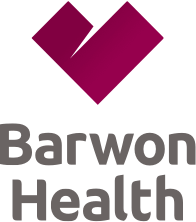Spasticity Clinic
Barwon Health’s Spasticity Clinic offers a multidisciplinary, evidence-based spasticity management service for adults. This service may be suitable for those with neurological conditions including, but not limited to: stroke, spinal cord injury, multiple sclerosis, cerebral palsy and traumatic brain injury.
Spasticity is a word used to describe the stiffness that occurs in muscles when there has been damage to nerves in the brain or spinal cord. Spasticity can lead to pain, muscle shortening (contractures), sudden jerky movements (spasms), and changes in the development and shape of bones and joints. This can affect the way people do activities such as walking, sitting, dressing and eating.
Our team includes a rehabilitation physician (doctor), occupational therapist, physiotherapist and registered nurse. Some of the treatment options for the management of spasticity are:
- Occupational therapy and/or physiotherapy exercise programs including stretching and strengthening
- Casting and orthotics (splinting)
- Oral anti-spasticity medications
- Botulinum Toxin injections
Some people do not require treatment for their spasticity, while others may benefit from one or more of these treatments. We discuss all options with clients during their first appointment.
Goals of treatment may include:
- Improved mobility such as transfers and walking
- Improved upper limb active function and use
- Improved passive range of motion to assist with ease of care for clients and/or carers for tasks such as self-care and hygiene
- Improved posture/positioning to prevent contracture and deformity
- Improved spasticity-related pain or sleep issues
- Improved body image (cosmesis)
The Spasticity Clinic runs every Thursday afternoon from the McKellar Community Rehabilitation Centre.
Cost
The Spasticity Clinic offers Medicare Billed Scheme (MBS) appointments for clients if they have a current referral from a GP or medical specialist. This means there is no out-of-pocket cost for clinic appointments.
There may be a small co-payment for Botulinum Toxin injections and any follow-up occupational therapy or physiotherapy appointments. All potential costs will be discussed with clients during their first appointment.
The Transport Accident Commission (TAC) and WorkSafe will cover the cost of service for people with an approved claim.
The National Disability Insurance Scheme (NDIS) may provide funding for appointments, intervention and equipment for people who are registered and have an approved plan.
How to refer
A General Practitioner (GP) or medical specialist referral is required.
Please address the referral to:
Spasticity Clinic
McKellar Community Rehabilitation Centre
45-95 Ballarat Road, North Geelong 3215
PO Box 281, Geelong VIC 3220
Email: [email protected]
Fax: (03) 4215 6376
Electronic referral: referralNET (Geelong region only).
In your referral, please include a summary of the person’s medical diagnosis, current symptoms and issues, goals for service and any relevant risks.
All referrals are triaged and if not suitable for the Spasticity Clinic, the referral may be forwarded on to a more appropriate service or feedback provided to the referrer.
Last Modified: Wednesday, 25 November 2020
Contact Us
Spasticity Clinic
McKellar Community Rehabilitation Centre
45-95 Ballarat Road, North Geelong 3215
Ph (03) 4215 5301
